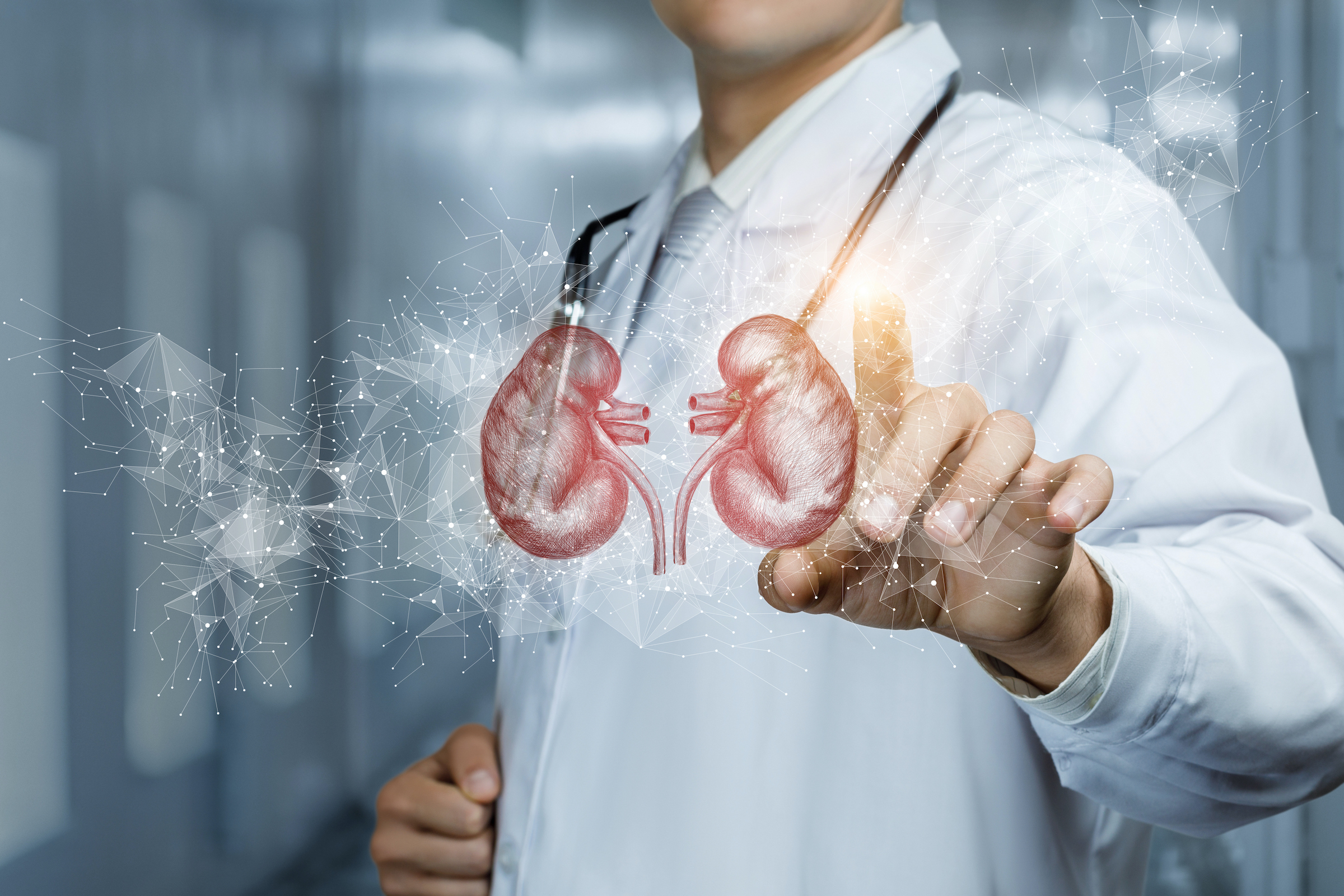Kidney Failure and Infection Symptoms: Understanding the Connection and What You Can Do

Kidney failure and infections are serious medical conditions that can greatly impact a person’s health and well-being. The symptoms of kidney failure and infections can vary depending on the severity and cause of the condition.
According to a study published in the Journal of the American Society of Nephrology, infections are a common cause of acute kidney injury (AKI) and are associated with a higher risk of mortality. The study found that urinary tract infections, bloodstream infections, and pneumonia were the most common types of infections that led to AKI.
Another study published in the Journal of Clinical Medicine highlights the connection between chronic kidney disease (CKD) and infections. The study found that patients with CKD have an increased risk of infections due to impaired immune function and altered microbiome. The study recommends the use of preventative measures, such as vaccination, to reduce the risk of infections in patients with CKD.
Managing kidney failure can be challenging, but there are a variety of treatment options available to help improve kidney function and manage symptoms. According to a review article published in the Journal of Clinical Medicine, treatment for kidney failure includes medications, dialysis, and kidney transplant. The article highlights the importance of understanding and management of kidney failure for improving outcomes.
Understanding Kidney Failure
Kidney failure, also known as renal failure, occurs when the kidneys are no longer able to function properly. The kidneys play an essential role in filtering the blood and removing waste products and excess fluids from the body. When the kidneys are not functioning correctly, waste products can build up in the blood, leading to a wide range of symptoms and complications.
There are two main types of kidney failure: acute and chronic. Acute kidney failure occurs suddenly and can be caused by a variety of factors, including dehydration, infections, medications, or trauma. Chronic kidney failure, on the other hand, develops over a longer period of time and is often the result of underlying conditions such as high blood pressure, diabetes, or polycystic kidney disease.
Symptoms of Kidney Failure
The symptoms of kidney failure can vary depending on the severity and cause of the condition. Some of the most common symptoms of kidney failure include:
· Fatigue: When the kidneys are not functioning properly, waste products can build up in the body, leading to feelings of fatigue and weakness.
· Fluid retention: The kidneys help regulate fluid levels in the body. When they are not functioning correctly, excess fluid can build up, leading to swelling in the feet, ankles, and legs.
· Shortness of breath: As excess fluid builds up in the body, it can also accumulate in the lungs, leading to shortness of breath.
· Nausea and vomiting: Kidney failure can cause a buildup of toxins in the body, which can lead to feelings of nausea and vomiting.
· Decreased urine output: The kidneys are responsible for filtering waste products from the body and producing urine. When they are not functioning properly, urine output may decrease.
Understanding Infections
Infections can occur anywhere in the body and can be caused by bacteria, viruses, fungi, or parasites. Infections can be acute or chronic, and their severity can vary depending on the type and location of the infection.
Symptoms of Infections
The symptoms of an infection can also vary depending on the type and location of the infection. Some of the most common symptoms of an infection include:
· Fever: When the body is fighting off an infection, it may raise its internal temperature, leading to a fever.
· Fatigue: Fighting an infection can be exhausting for the body, leading to feelings of fatigue and weakness.
· Pain: Depending on the location of the infection, you may experience pain in a specific area of the body.
· Swelling: Infections can cause inflammation and swelling in the affected area.
· Redness: Infections can cause the affected area to become red and inflamed.
The Connection Between Kidney Failure and Infections
When kidney failure and infections occur together, the symptoms can be even more severe. The kidneys play a critical role in fighting infections by removing toxins and waste products from the body. When the kidneys are not functioning correctly, the body may struggle to fight off infections, leading to more severe and prolonged symptoms.
In addition, infections can also cause kidney damage or worsen existing kidney damage. For example, urinary tract infections can lead to kidney infections, which can cause permanent kidney damage if left untreated. Similarly, some infections can cause inflammation in the kidneys, leading to acute kidney failure.
Symptoms of Kidney Failure and Infection:
When kidney failure and an infection occur together, the symptoms can be even more severe. Some of the most common symptoms of kidney failure and infection include:
- High fever: A fever is a common symptom of an infection, but it can also indicate that the kidneys are not functioning properly.
- Increased fatigue: Fighting off an infection can be tiring, and when the kidneys are not functioning properly, it can exacerbate feelings of fatigue.
- Pain and swelling: Infections can cause pain and swelling in the affected area, which can be even more severe when combined with the fluid retention that can occur with kidney failure.
- Decreased urine output: When kidney failure and infection occur together, urine output may decrease even further, as the body tries to conserve fluids to fight off the infection.
Managing Kidney Failure :
Managing kidney failure can be challenging, but there are a variety of treatment options available to help improve kidney function and manage symptoms. In this article, we will discuss some of the most common treatments for kidney failure.
Medications
Medications are often used to treat kidney failure and its associated symptoms. Some of the most common medications used to treat kidney failure include:
· Diuretics:
Diuretics are medications that help reduce fluid build up in the body by increasing urine output. This can help alleviate symptoms such as swelling in the legs and feet.
· Phosphate binders:
Phosphate binders are medications that help reduce the amount of phosphate in the blood. This is important because when the kidneys are not functioning properly, phosphate can build up in the blood and cause complications such as bone disease.
· Erythropoietin-stimulating agents (ESA):
ESAs are medications that help stimulate the production of red blood cells. This is important because kidney failure can lead to anemia, which is a condition in which there are not enough red blood cells in the body.
· Blood pressure medications:
High blood pressure is a common complication of kidney failure. Blood pressure medications can help manage high blood pressure and reduce the risk of further kidney damage.
Dialysis
Dialysis is a treatment that helps remove waste products and excess fluid from the body when the kidneys are no longer able to do so on their own. There are two main types of dialysis: hemodialysis and peritoneal dialysis.
Hemodialysis:
Hemodialysis involves the use of a machine that filters waste products and excess fluid from the blood. During hemodialysis, blood is removed from the body and passed through a dialysis machine, where it is filtered before being returned to the body.
Peritoneal dialysis:
Peritoneal dialysis involves the use of the lining of the abdomen (the peritoneum) to filter waste products and excess fluid from the body. During peritoneal dialysis, a sterile solution is injected into the abdomen, where it is left for a period of time before being drained out along with waste products and excess fluid.
Kidney Transplant:
A kidney transplant is a surgical procedure in which a healthy kidney from a donor is transplanted into a person with kidney failure. Kidney transplants are often considered the best treatment option for people with end-stage kidney failure, as they can improve quality of life and increase life expectancy.
Before a kidney transplant can take place, the person with kidney failure must be evaluated to ensure that they are a suitable candidate for the procedure. This evaluation may include blood tests, imaging studies, and other tests to assess overall health and determine if a transplant is likely to be successful.
Lifestyle Changes
In addition to medical treatments, there are also lifestyle changes that can help manage kidney failure and its associated symptoms. Some lifestyle changes that may be recommended include:
Following a healthy diet:
A healthy diet can help reduce the workload on the kidneys and improve overall health. People with kidney failure may be advised to limit their intake of certain foods and drinks, such as those high in sodium, potassium, and phosphorus.
Staying hydrated:
Although people with kidney failure may need to limit their fluid intake
